
Patients who used mobile and sensor technology to track their symptoms demonstrated reduced severity of their symptoms compared with patients who received standard care.

Your AI-Trained Oncology Knowledge Connection!


Patients who used mobile and sensor technology to track their symptoms demonstrated reduced severity of their symptoms compared with patients who received standard care.

A total 1.9% of more than 7.6 million current and former heavy smokers in the United States underwent lung cancer screening in 2016, suggesting that it remains inadequate despite USPTF recommendations.

A shorter 6-month course of adjuvant trastuzumab (Herceptin) was found to be noninferior for disease-free survival compared with the standard 12-month schedule for patients with HER2-positive early breast cancer.

Adding nelarabine to escalating-dose methotrexate induced a 4-year disease-free survival rate of 91% in a cohort of pediatric and young adult patients with newly diagnosed T-cell cancers.

Both cognitive behavior therapy for insomnia (CBT-I) and acupuncture produced clinically meaningful improvements in insomnia severity scores for cancer survivors, but data from the randomized CHOICE clinical trial showed that CBT-I was more effective overall for reducing the severity of insomnia.

Discontinuation of tyrosine kinase inhibitor treatment may be a possibility for children with chronic myeloid leukemia and, because they could be on-treatment for decades, treatment-free remission is even more important for pediatric patients than for adults.

Eltrombopag (Promacta) boosted the platelet count in a 13-year-old boy with HIV-associated thrombocytopenia, according to case study results presented at the 2018 American Society of Pediatric Hematology/Oncology Conference.
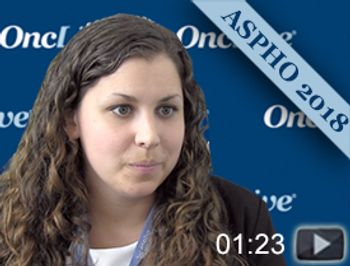
Elissa Engel, MD, pediatric resident, University of South Florida, discusses the successful use of eltrombopag (Promacta) in a pediatric patient with HIV-related thrombocytopenia.

The Children's Oncology Group is currently involved in 5 studies exploring targeted therapies in non-Hodgkin lymphoma (NHL) that could eventually change the face of pediatric NHL treatment.

A first-time study of chimeric antigen receptor T-cell therapy in youths with Down syndrome-associated relapsed/refractory (r/r) acute lymphoblastic leukemia produced high remission rates and toxicity results that were similar to those observed in patients with r/r ALL.

Tazemetostat demonstrated promising antitumor activity in pediatric patients with INI1-negative solid tumors.
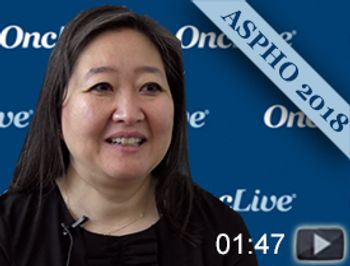
Susan N. Chi, MD, senior physician, director, Pediatric Brain Tumor Clinical Trials Program, Dana-Farber Cancer Institute, assistant professor of Pediatrics, Harvard Medical School, discusses a phase I multicenter trial of tazemetostat in children with INI1-negative tumors.

Eliminating T cells carrying alpha and beta chains of the T-cell receptor reduced the risk for graft-versus-host-disease while producing "excellent" engraftment kinetics for young patients with acute leukemia who underwent hematopoietic stem cell transplant.

2B8T2M, a fusion of the IL-15 superantagonist ALT-803, and 4 single-chains of rituximab (Rituxan) significantly boosted the cytotoxicity of expanded peripheral blood natural killer cells against Burkitt lymphoma cells in in vitro testing.
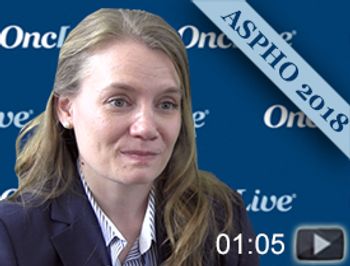
Kelly Bailey, MD, PhD, physician, department of Pediatric Hematology/Oncology, Children's Hospital of Pittsburgh, University of Pittsburgh Medical Center, discusses key molecular pathways in pediatric bone sarcoma.

Brian D. Crompton, MD, physician, Pediatric Hematology/Oncology, Dana-Farber Cancer Institute, assistant professor of pediatrics, Harvard Medical School, discusses the utilization of liquid biopsies in pediatric patients with sarcoma.

CAR T-cell therapy can induce next generation sequencing negativity in patients with relapsed/refractory acute lymphoblastic leukemia, suggesting a "synergistic" relationship with hematopoietic cell transplant.
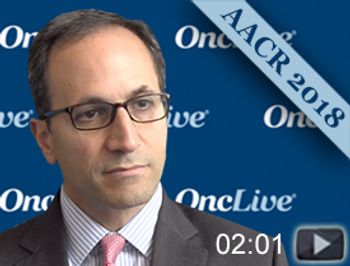
Robert Ferris, MD, PhD, vice chair for Clinical Operations, associate director for Translational Research, and co-leader of the Cancer Immunology Program at the University of Pittsburgh Cancer Institute, discusses the updated findings from the CheckMate-141 trial in head and neck cancer.

Komal L. Jhaveri, MD, FACP, medical oncologist, Memorial Sloan Kettering Cancer Center, discusses the results of a basket study of taselisib in patients with PIK3CA-mutated solid tumors.

A search for molecular guidance in the use of anti-PD-1 therapy in urothelial cancer pointed toward myeloid-derived suppressor cells as a potentially useful biomarker.

Tumor mutational burden in non–small cell lung cancer identified patients who were more likely to respond to first-line combination immunotherapy with nivolumab and ipilimumab, an updated analysis of CheckMate-586 clinical trial data showed.

Alice T. Shaw, MD, PhD, associate professor of medicine, Harvard Medical School, attending physician, Thoracic Cancer Program, Massachusetts General Hospital, discusses the efficacy of lorlatinib in ALK-positive non–small cell lung cancer.

Alexander M. M. Eggermont, MD, PhD, director general of Gustave Roussy Cancer Campus Grand Paris in Villejuif, France, discusses the impact of adjuvant anti–PD-L1 agents on the treatment landscape of melanoma.
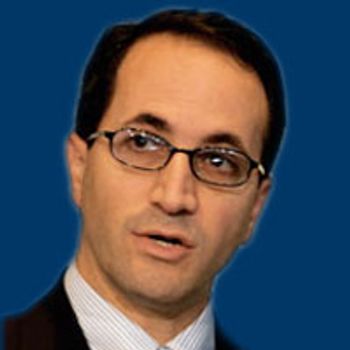
Treatment with nivolumab reduced the risk of death by 32% compared with investigator’s choice of therapy for patients with metastatic or recurrent squamous cell carcinoma of the head and neck.

Combination use of CMP-001, an intratumoral toll-like receptor 9 agonist, and pembrolizumab (Keytruda) showed clinical activity in reversing PD-1 checkpoint inhibition resistance in patients with metastatic melanoma.
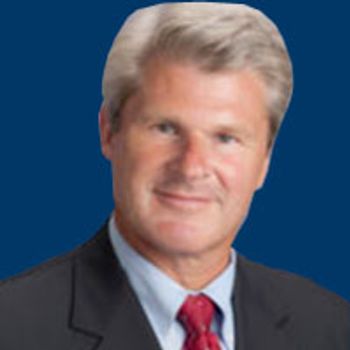
Adding atezolizumab to chemotherapy and an angiogenesis inhibitor led to significant improvement in progression-free survival for patients with untreated advanced nonsquamous non-small cell lung cancer.

Adding the IDO1 inhibitor epacadostat to the PD-L1 inhibitor durvalumab (Imfinzi) failed to induce any clinical responses in patients with pancreatic cancer.

Padmanee Sharma, MD, PhD, scientific director, Immunotherapy Platform, The University of Texas MD Anderson Cancer Center, discusses updated findings from the CheckMate-275 trial in bladder cancer during an interview at the 2018 AACR Annual Meeting.

Arjun V. Balar, MD, assistant professor, Department of Medicine, director, Genitourinary Medical Oncology Program, NYU Langone’s Perlmutter Cancer Center, discusses the results of a study investigating durvalumab (Imfinzi) plus tremelimumab in patients with metastatic urothelial cancer.

The combination of nivolumab and ipilimumab more than tripled the 1-year progression-free survival rate versus chemotherapy for treatment-naïve patients with non–small cell lung cancer with high tumor mutation burden.